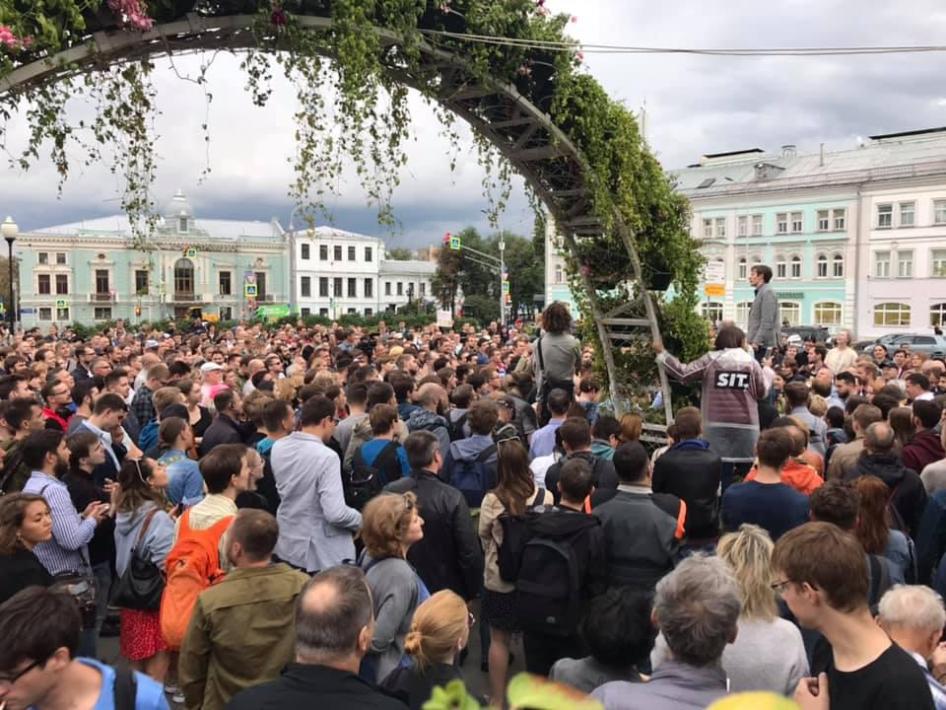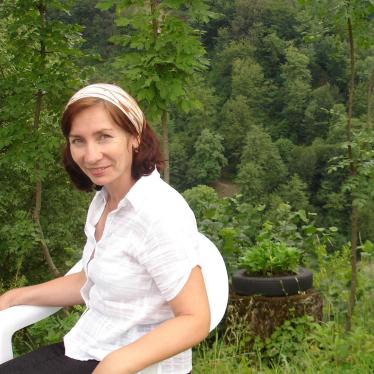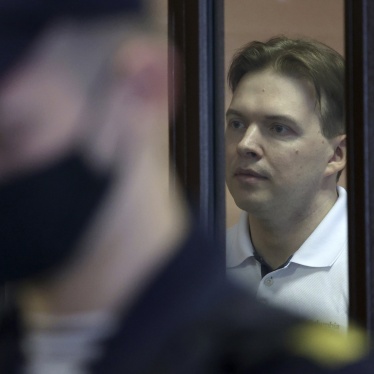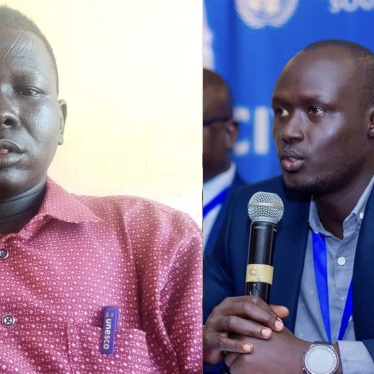This week, Moscow’s election commission published a list of candidates they had allowed to register to run for the city legislative assembly on September 8. The glaring absence of any viable opposition candidate on the list sparked protests in the city.
Local election legislation requires independent candidates to collect signatures from at least 3 percent of eligible voters in their election district to be eligible to run. If the commission rejects less than 10 percent of the collected signatures, the candidate is put on the ballot.
However, Moscow’s commission rejected more than 10 percent of signatures collected in support of all prominent opposition candidates with credible chances of winning. Grounds such as alleged misspelling, wrong addresses, or similar errors, or mistakes in the candidate’s election account data were used. In other cases, based on handwriting analysis, authorities alleged signatures were faked or argued that the signatories weren’t on the official lists of voters.
Several of the rejected signatures belong to prominent public figures. The BBC Russian Service recorded a video in which voters stated their names and reported how the district election commission claimed they weren’t on the voter list. One of the “non-existents,” Elena Lukyanova, a renown professor of law, is, ironically, on the advisory council of Russia’s Central Election Commission.
The rejected candidates can file a legal complaint. But it’s extremely unlikely their complaints can be successfully reviewed in time to register for the elections.
The importance of Moscow for federal politics cannot be overestimated. So it’s not surprising that, similar to Russia’s 2018 presidential vote, the authorities are making special efforts to ensure the new Moscow legislature remain as opposition-free as the current one.
These tactics sparked public protests. At a large unsanctioned rally last week, police detained almost 40 peaceful protestors, including some rejected candidates. A nineteen-year-old protester who was detained was hospitalized with a concussion after police officers beat him. More public protests followed. They’ve been ongoing for days, with more planned for this weekend, July 21-22.
On July 18, a commission of the Russian president’s Human Rights Council condemned the signature verification process as “non-transparent” and urged Moscow's election authorities to let all the candidates who had gathered the required number of signatures take part in the election. If the authorities don’t do this, the trust gap between the government and the public will continue to widen.








